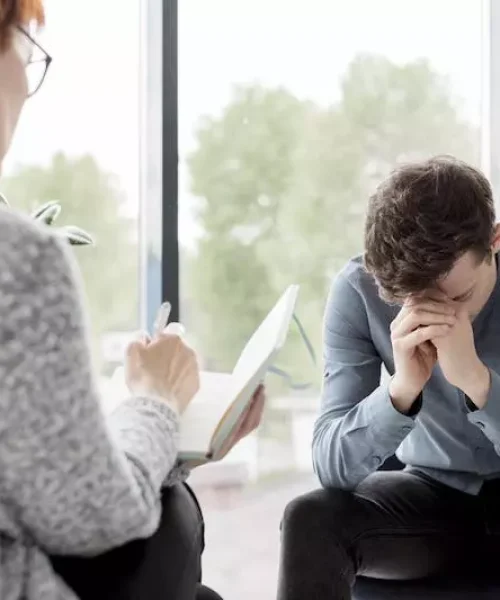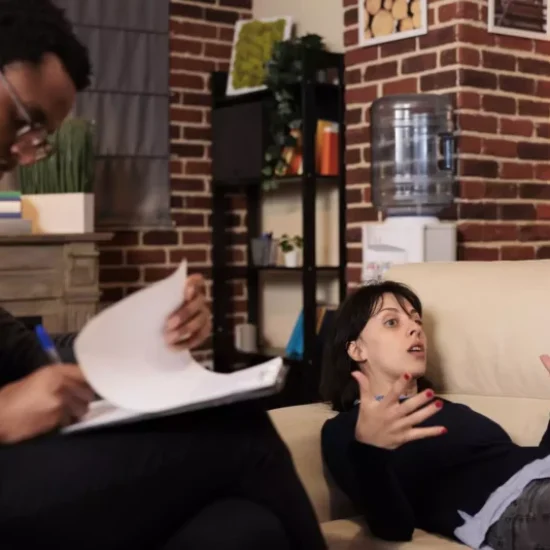Psychotherapy Services
Psychotherapy services offer essential support to individuals grappling with psychological challenges, helping them to navigate the complexities of life more effectively.
Tailored to meet each person’s unique needs and goals, psychotherapy encompasses various therapeutic approaches aimed at helping individuals adapt to significant life changes, make difficult decisions, enhance their social and communication skills, regulate emotions, and focus on personal growth and development.
The primary goal of psychotherapy is to diagnose, treat, and prevent psychological, emotional, and behavioral issues. It encourages positive transformations in clients who seek to improve their emotional and social well-being, thereby enhancing their overall satisfaction and quality of life. Clients often find that psychotherapy alleviates persistent distress and mitigates the symptoms associated with their conditions.
This centered approach is similarly beneficial in children’s psychotherapy, where detrimental patterns obstructing healthy development are identified. Through careful observation and clear, respectful communication, therapists work with children or their families in therapeutic dialogues and interactions aimed at problem-solving, behavior modification, and impactful life improvements.

Who and How We Help
Psychotherapy for children
Children facing emotional or behavioral challenges can greatly benefit from psychotherapy. Through engaging and age-appropriate methods, therapists help children understand and express their feelings in healthier ways.
Play therapy, art therapy, and narrative approaches are common, allowing children to communicate through activities they naturally enjoy. This therapeutic interaction helps identify patterns of behavior that may be impacting a child’s emotional development.
The goal is to equip children with better coping mechanisms, enhanced problem-solving skills, and improved interactions with peers and family members.
Psychotherapy for adults
Adult psychotherapy addresses a wide range of mental health issues from anxiety and depression to stress and relationship problems. Adults may seek psychotherapy for help managing life transitions, such as career changes or the loss of a loved one, or for deeper issues like past trauma.
Therapy can be conducted in various formats, including individual, couple, or group sessions, depending on the needs and comfort level of the client.
Techniques such as cognitive-behavioral therapy (CBT), psychodynamic therapy, and mindfulness are often used to help clients modify destructive thought patterns, process past experiences, and develop healthier emotional responses.
Psychotherapy treatment steps
The psychotherapy process begins with a thorough assessment by a mental health professional to establish a clinical diagnosis. This diagnosis guides the selection of appropriate therapeutic approaches.
Psychotherapy may include individual, group, family, or couples’ sessions, and utilizes techniques such as behavioral therapy. Integrating these approaches with other treatments often yields more effective outcomes, particularly for severe mental health conditions.
Throughout therapy, a supportive and empathetic environment is cultivated, enabling clients to uncover the roots of their difficulties and explore possible solutions. This process fosters emotional awareness and insight, leading to transformative changes in attitudes and behaviors that promote a healthier and more fulfilling life.

The Benefits of Psychotherapy Services
Our team at Good Health includes highly trained psychotherapists skilled in addressing a diverse range of mental health issues. While the support of friends and family is invaluable, the professional intervention provided by psychotherapy often delivers benefits that surpass general advice. Here are some of the key advantages of engaging in psychotherapy:
Safe and confidential environment: Provides a private space for discussing personal concerns without fear of judgment.
Clarity and understanding: Helps individuals understand their mental health conditions and plan effective treatments.
Improved emotional and psychological health: Addresses root causes of emotional distress, enhancing coping mechanisms.
Enhanced quality of life: Improves relationships, productivity, and overall satisfaction by resolving emotional and behavioral issues.
Relief from symptoms: Offers significant relief from symptoms of mental health conditions like anxiety and depression.
Personal growth and insight: Encourages self-awareness and helps change detrimental behavioral patterns.
Support during life transitions: Provides support and resilience through challenging life changes and transitions.
FAQs
When to seek psychotherapy services?
Getting psychological help may be necessary if there are changes to one’s personality and normal routine habits or if people feel unable to handle issues and regular tasks. They may also experience a sense of detachment or disconnect from daily activity, excessively worry, or have unusual patterns of thinking.
How does psychotherapy differ from psychiatry?
Psychotherapists are not medically trained doctors like psychiatrists. Psychotherapy services does not involve the use of medication whereas psychiatry treatments typically include prescription drugs. Psychiatrists diagnose disorders, oversee therapy, and offer a variety of options including medication. Psychologists primarily provide psychotherapies.
How to know if I need a psychiatrist or psychotherapist?
Although a psychiatrist and psychotherapists both strive to support their patients’ mental wellness, there are clear distinctions between how they approach treatment. Depending on the illness, symptoms, goals, and if medication is required will determine which type of mental health provider is suitable.
How long does psychotherapy usually last?
The duration of psychotherapy varies depending on the individual’s unique needs and goals. Some people find relief in short-term therapy, while others may engage in long-term therapy to address more complex issues.
Are the techniques used in adult psychotherapy different from those used with children?
Yes, while some techniques may overlap, adult psychotherapy often involves more direct communication and complex cognitive-behavioral techniques. In contrast, child psychotherapy frequently utilizes play and creative expression to facilitate understanding and healing.
What outcomes can I expect from engaging in psychotherapy?
Outcomes can include improved mental health, better handling of emotions, enhanced communication skills, and more effective coping strategies. The specific outcomes will depend on your goals for therapy, which you can set with your therapist.
Don't hesitate to contact us
Have any questions?
Please complete the form below and we will get right back to you.